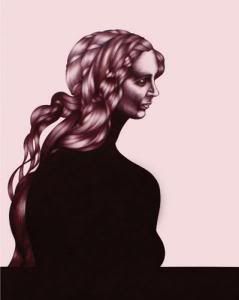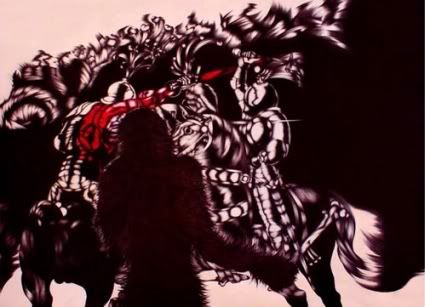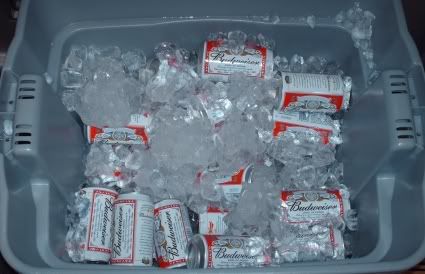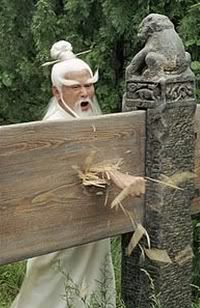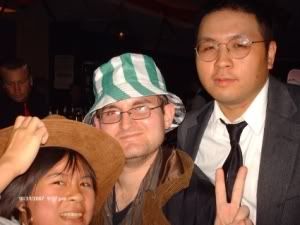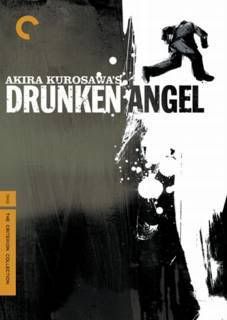 NEW YORK, November 30 —
NEW YORK, November 30 — The folks at
Janus Films and
Criterion Collection recently released the latest high-definition digital transfer of
Akira Kurosawa's Drunken Angel (released November 27, 2007).
As part of their standard production,
Drunken Angel is a masterfully authored DVD with an amazing accompanying booklet. The packaging reminds me of old rock albums that were accompanied with original artwork and great liner notes. Packaging and good liner notes are slowly becoming a lost art with cheap DVD releases, Thinpaks, and direct downloads.
The Criterion DVD also has great extras like old archive interviews with Kurosawa and commentary by
Donald Richie. Donald Richie is the author of
A Hundred Years of Japanese Film: A Concise History.

Drunken Angel's Criterion Collection Packaging and Liner Notes.I have to confess that I'm a huge Akira Kurosawa fan. I have most of Kurosawa's movies in the restored Criterion Collection editions.
Drunken Angel is not characteristic of Kurosawa's later samurai movies like
Rashômon or
Seven Samurai. It's closer in tone and content to his earlier films dealing with post World War II Japan such as
Stray Dog and
Ikiru. It deals with many of Japan's post war problems such as crime, disease, and poverty. These themes are the pillars of Kurosawa's early noir classics.
In many ways,
Drunken Angel is a precursor to Kurosawa's more famous
Ikiru.
Ikiru is one of my all time favorite films. Both films deal with issues of fatal diseases and poverty in Japanese society.
Drunken Angel seems a little raw in comparison with
Ikiru. In this film, Kurosawa was still looking for his own voice and style. Some scenes seem like pale imitations of
Italian neorealism and
Russian silent films. There were also some scenes that didn't seem like Kurosawa at all. (Note: Both of these styles are hugely influential on Kurosawa's own directorial style.)
The main story centers on the two main characters played by
Takashi Shimura and
Toshirô Mifune. Both Shimura and Mifune play notable samurai in Kurosawa's
Seven Samurai movie. In
Drunken Angel, Shimura plays a drunken doctor, who treats poor patients in his small clinic. Mifune plays a gangster that is diagnosed by Shimura with a deadly case of
tuberculosis. Shimura directly confronts the gangster with his illness.
Shimura's directness was shocking to a Japanese audience because of Japanese medical practices at the time.
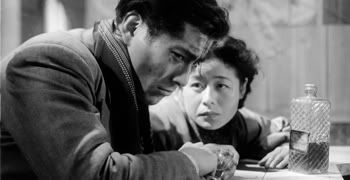
In the 1940s and the 1950s, it was common for Japanese doctors to lie to their patients about deadly ailments like cancer and tuberculosis. Japanese doctors believed that news of a fatal disease would be like handing a death sentence to a patient. The news would impair a patient from living the rest of their lives with any sense of normalcy. Kurosawa often criticized this medical practice in his early films. The practice of concealing fatal diseases prevented Japanese society from dealing directly with the problems of poverty and poor health.
In post war Japan, many Japanese died of deadly diseases from poor living conditions, poor hygiene, and polluted water. Disease and hygiene became very serious issues, and Kurosawa explores these issues in
Drunken Angel.
If you don't mind some of the raw elements, I recommend that you watch
Drunken Angel. It is not one of Kurosawa more polished films, but it does not disappoint. The film has passionate performances from both Shimura and Mifune, and Kurosawa's directing and editing are emotionally powerful.
Related Links:Criterion Collection: Drunken AngelIMDb: Akira KurosawaWikipedia: Akira KurosawaWikipedia: Tuberculosis





